Episode 296 - Andy Crouch, Patrick Lencioni, and Mary Miller Talk Practical Steps for Improving Company Culture
Entrepreneurs have the ability to create a workplace where people can flourish, but we have to act on that ability in order to make that happen.
So in this masterclass-style episode, we're going to dive in a little deeper on this topic.
The episode is organized in three parts, heart, head, and hands.
Author Andy Crouch will kick us off by talking about the responsibility and opportunity entrepreneurs have to create good work and good rest for their employees. This section is all about heart change.
Then, Patrick Lencioni is going to talk to our heads a little bit as he unpacks a practical tool called "the Working Genius" that enables us to know our employee's strengths so we can put them in positions to succeed.
Lastly, we're going to dig into the details. As we hear from Mary Miller, an entrepreneur and the chairwoman of the board at John cower, a leading janitorial service company based in Cincinnati. Mary gives practical examples for how they drastically overhauled their company culture to improve employee retention and satisfaction.
Additional Links:
All opinions expressed on this podcast, including the team and guests, are solely their opinions. Host and guests may maintain positions in the companies and securities discussed. This podcast is for informational purposes only and should not be relied upon as specific advice for any individual or organization.
Episode Transcript
Transcription is done by an AI software. While technology is an incredible tool to automate this process, there will be misspellings and typos that might accompany it. Please keep that in mind as you work through it.
Joseph Honescko: Over the last few weeks, we've been talking about culture building. As entrepreneurs, we have the ability to create a workplace where people can flourish, but we have to act on that ability in order to make that happen. So in this masterclass style episode, we're going to dive in a little deeper on this topic. The episode is organized in three parts heart, head, and hands. Author Andy Crouch will kick us off by talking about the responsibility and opportunity entrepreneurs have to create good work and good rest for their employees. This section is all about heart change. Then Patrick Lencioni is going to talk to our heads a little bit as he unpacks a practical tool called the Working Genius that enables us to know our employees strengths so we can put them in positions to succeed. Lastly, we're going to dig into the details as we hear from Mary Miller, an entrepreneur and the chairwoman of the board at John Cower, a leading janitorial service company based in Cincinnati. Mary gives practical examples for how they drastically overhauled their company culture to improve employee retention and satisfaction. All that coming up on this episode of the Faith Driven Entrepreneur podcast. I'm Joey Honescko, and I'll be guiding you through these different conversations. So let's dive in.
Andy Crouch: I want to talk today about the basic thing I think that entrepreneurs do, which is create opportunities for good work and good rest. So basically what you are doing as an entrepreneur anywhere in the world, any field or sector, is you are creating good work. I believe from a Christian point of view, there's never going to be enough work, not ever enough good work, because good work is the fruitful transformation of creation. It's our image bearing role of taking this beautiful, abundant world that God made, finding ways to explore and develop its possibilities and bring them forth in the world and in a very real way. I think this work of being image bearers is an infinite game. There's infinite good work to be done, and entrepreneurs are the people at the sort of leading edge of discovering what the next set of work is for human beings to do in the world. And interestingly, this also creates good rest. Your job is not actually just to create jobs or just to create work. It is also to create good rest because real rest is the fruit. I work and then I, with gladness and delight, contemplate what I've done. And you actually can only have this kind of rest after you've worked. So if you think about the narrative of Genesis one, was God resting before he was created and then he like, got to work, know whatever God was doing before he was creating, it wasn't resting. The resting came after six days of speaking and seeing every day. It's good, it's good, it's good. And then at the end, he could, his image bearer. He says it's very good. And then he rests, because rest is the fruitful contemplation of fruitful work. So the the work that we do, as creators of opportunity, is make more and more ways for human beings to experience the good work and the good rest that we were made for, as God's image bearers in the world. So this is beautiful, a beautiful calling. Now, obviously, this is not the whole story about the world we live in, because there is an alternative to work and rest, which we live with all the time. And I want to call it toil and leisure. So instead of the work and rest we were made for, we've ended up, in the world we actually have with toil and leisure. So think about toil as excessive, endless, fruitless labor. So you are definitely putting out effort in the world. But nothing of satisfaction is coming back. No sense of goodness is coming back. You end toil rather than, sort of grateful and glad and resting in the good work you've done. You end up just kind of exhausted. Nothing worthwhile to show for what you've done. And when your life is full of toil, you start looking for just something to relieve the exhaustion. And that I'm going to call leisure. This, if toil is fruitless, labor leisure is basically fruitless escape from labor. It's when you get home after a fruitless day and you're like, oh, I'm so tired. It's not. You're not tired because it was a good day of work, and you're now just glad to celebrate what you've done. You're tired because there was nothing worthwhile in this day. And what do you want to do? You want to turn on Netflix? Choose your kind of drug of choice to sort of escape, to sit back, to try to just escape from, the disappointment of a day that was not spent in image bearing. And I think we have moved in the whole human story from, the original design of work and rest to a very widespread reality of toil. And then whatever leisure we can eke out as human beings to somehow compensate for the sense that our lives are not actually mattering in the way that we want our lives to matter. Now, let's take this a step further and recognize that something starts, really, with the rise of economic wealth in the modern era, when we start to have kind of the production of real surplus in human societies, which is we actually start to develop two classes, and you can think of them as the leisure class and the toiling class. So you actually end up with a class of people whose lives are defined almost entirely by the absence of work in their lives. If you happen to be a fan of Downton Abbey, right. It's a story of this kind of classic picture of an upstairs of a landed aristocracy, the leisure class, who, as near as we can tell, really never do any work. They sit around, talking and having little intrigues and sitting at elaborate meals. And then downstairs is where a huge amount of work happens to create the leisure of the upstairs. So that is a world where toil and leisure aren't actually divided in the course of a day. They're actually divided between different classes of people. Now, you, probably don't feel like you live upstairs at downtown abbey because it was the product of a very particular time. And in fact, very few people live that way today, although there might still be a few. But the leisure class was the fruits of the mercantile and financial revolutions of the 15th century, combined with the Industrial Revolution Revolution of the 18th 19th century. But we're living in a slightly different time. We're living on after the next big revolution, the computational revolution that, when stacked on the financial and industrial revolutions, created what we call technology and technology, has generated a new kind of leisure and made a kind of leisure available for a very large number of people, which may well include many of the folks who, are watching and part of this event. And let me put it in terms of, making dinner. So how do you get dinner at the end of a long day? So here's the work and rest. Way to get dinner. Someone or several members of the family work together. Starting with relatively raw ingredients. That other people works to produce, of course. And you actually make a meal together, and then you sit down and you enjoy the meal. This probably still happens in your home on special occasions. Maybe Thanksgiving in America, where a big a lot of work is done to prepare a meal and then everyone sits down, ideally including the people who prepare the meal all together. And you just enjoy, like, wow, this is so good. We're enjoying this so much. Well, that's work and rest at the dinner table. But that's probably not what a lot of your nights are like at home. What you do in the leisure version of dinner for your family is you just order out and the doorbell rings. Somebody drops off a bag of stuff to eat. You take it in and you and your family sit down. You've done no work at all, thank goodness, because you're so tired from the day and you just enjoy the meal. This is in many ways a delightful experience to just have the food show up, enjoy the food without anyone having to work to prepare it. And many of us choose that leisure option any given night of the week. Two problems with it that we feel, I think. One is we do wonder about the people behind the scenes who did work. In fact, all leisure requires someone else to work. This is a difference between work and rest and toil and leisure. Work can be done by everyone and then rest can be enjoyed by everyone. But for anyone to enjoy leisure, someone has to work. And we do wonder about those invisible people who make the meals that we enjoy and who deliver the meals that we enjoy and we think, are they getting good work? Or are they actually experiencing toil? And we're not sure, and we sometimes wonder, and we sometimes fear that behind the leisure that we enjoy is actually a lot of toil. So that's one problem. The other, maybe more proximate problem. Is that as enjoyable as it is to just have the food show up and have the leisure of a nice dinner without having to make it. The leisure is actually far less good for us and restorative for us than the rest would be if our family had actually collaborated on making dinner and then sat down and enjoyed it. We would have developed a relationship. We would have developed skill. The kids would have gotten to maybe participate in making the food. They would have seen at least their mom or their dad or both preparing the food. There would be the kind of sense that we are actually doing something together that makes us different, and maybe in some way better together. And I would say, because we are doing the image of God when we do that culture making, but when we just have the leisure, we don't actually develop, we don't become, we just consume. So this is not great for us in large quantities or maybe even in small quantities. Leisure is not as good for us as work and rest. So what we've done in a technological society is to provide a lot of seemingly fortunate people with a lot of leisure of this kind, not quite the Downton Abbey kind, but the kind of which on any given day, we can escape from the kind of fruitlessness of our lives and enjoy the work, or maybe the toil of others in ways that don't really develop us. But I actually think we've reached the point, and I think many of us, since this were easy, is starting to have diminishing returns, the relief of toil, the sense that often we don't have to work for the good things we need. We can just buy them. It's actually not that good for us as human beings, evident maybe most clearly in what's happening to our actual bodies and the physical strength of our bodies. Because it actually turns out you need a load bearing activity to have a healthy body. And the other really strange thing that's going on is that at the very same time as we've ended up with this pure, seemingly beautiful amount of leisure, our lives don't feel like upstairs at Downton Abbey. Do you feel like you live a life in the leisure class? No way. You get to the end of any given day. You feel like you've actually been toiling a huge amount of the day. So even those who are fortunate in this economy end up feeling like their lives are toil toil toil with a little bit of compensating leisure and all of that haunted by the awareness that behind the curtain of our modern economy is a huge amount of work that probably is more like toil. We went after the problem of toil at the dawn of the technological era, but we did not try to solve the problem of good work. We thought our job was to make things easy. But we haven't figured out how to make work good. And if anything, we've ended up creating more toil and fewer and fewer truly good jobs that are truly satisfying, more toil for both the relatively powerful and fortunate and the relatively poor and unfortunate alike. So. This creates an amazing central opportunity for redemptive, faith driven entrepreneurship in the world. We need to be setting our sights on creating good work, which will then leads a good rest. The question is not how to make toil easier and make leisure abundant. It's how to make good, hard things possible, because good work is a good, hard thing, so that good rest will be possible for everyone in the economy that we're part of. Our job is not actually to make people's lives easier, to relieve people of difficulty. It's to help our neighbors take on worthwhile, difficult things and provide the right kinds of support that will help them actually thrive as they take that on in the good work we're meant to do in the world.
Joseph Honescko: Andy does a great job at speaking to our hearts there. Creating a positive company culture goes beyond ping pong tables and extended lunch hours. It's not just what you offer, it's the heart behind the offering. So are you trying to create good work and good rest for your employees? Do you or people on your team even know your employees well enough to know what good work would look like for them? That's what we'll talk about here as we transition into the head part of this episode. Patrick Lencioni is a multi-time bestselling author with books like The Five Dysfunctions of a team. He's all about creating tools and frameworks to help leaders know themselves and others more deeply. And in this interview he did with William and Rusty. He talks about what he calls the six types of working genius, and he shows how knowing the natural bends and desires of your team will help you help them succeed and flourish in their work. Here's that conversation.
William Norvell: Pat were really excited. Just overjoyed to hear about, working genius. And so the first question I would have as we dig in is, what are the six types of working genius? And why should faith driven entrepreneurs take the time to learn which ones they have?
Patrick Lencioni: So let me answer the second question first. And that is faith driven entrepreneurs to really do what they want to do, which is stewardship, which is to do the best with what God has given them, have to understand what God has given them, and he is giving them gifts. He is giving each of us gifts, and he's also giving us limitations. None of us have all the gifts we need each other. The body of Christ Christ himself is the only one who had every gift. And so he gives us unique gifts. And if we don't understand those, we don't know how to use them and put them at his disposal. So I think that's so critical that a faith driven entrepreneur needs to understand. And there's other benefits to it too, that we'll get into. But here are the six types of working genius. And these are the God given talents as they relate to the specific tasks of getting work done. Each of us has two. There are geniuses that we love that give us energy and joy and passion. Those are our geniuses. There's two that we can do, but not for a long, long period of time. We call those working competencies. We can do them. They don't feed us. And then there's two that we call working frustrations, which really rob us of our joy. And so no one can do it all together without others. So here's the six types of working genius. First, there's the genius of wonder. This is the first on any kind of work. It's the genius, the gift of pondering and noticing and reflecting and contemplating and asking the question, why is this good enough? Is there more here? Is there something wrong? Could we do better? Most people don't think of this as a genius at all. In fact, many people see it as something they've been criticized in their life for. It's like, how come you're not coming along with us? It's like there are some people in life who are gifted by God with the ability to sit in ambiguity and ask questions and notice things. And every piece of work begins with the genius of wonder. The next one after wonder comes the working genius of the invention. So that's the person who takes that question, that issue, that possibility and says, I want to solve it. I want to come up with a unique way of seeing things. God gave me this gift. It's been in my heart my whole life. I've not always been able to exercise it, but I cannot help but want to invent new ways of doing things. And I know that's a gift, because I want to do it even when it's not called for. Because that's the thing it feeds me. And there are times in life where I have to set that gift aside and say, this is a gift from God. But on this project, in this moment, it's not being called for, but it's something I do naturally is something I almost can't help do. It gives me joy. It gives me energy. And what a beautiful thing when I'm allowed to use that gift from God. So it goes wonder first, invention next. But that's not enough because not everything I invent or somebody invent is actually good already. Which leads us to the next working genius, which is the genius of discernment. Now, in the faith world, we think of discernment as discerning the Holy Spirit in the God's call to us. This is a little different, I think, and that is the ability to have gut feel, to be an integrative thinker, to have instinct and intuition. And some people, God has given this ability to see patterns and to have a gut feel. And you can go to them even when they don't have expertise and say, what do you think I should do? So the discerner works with the inventor to make sure the idea is fleshed out, that problems are solved, that the bad ideas are rejected and the good ones are accepted. And that leads us to the fourth genius, which is a genius of galvanizing. The genius of galvanizing is that person who just can't help but get people excited. They want to go tell the world they want to inspire. They want to move people. They want to recruit them and say, everybody, this is a great idea in my organization, by the way, I am not naturally a galvanized or that's not one of my geniuses. For more than 20 years, I was the chief galvanizing officer in my company and it was driving me crazy. Almost everyone else in my organization had galvanizing is one of their frustrations, and since it was a competency of mine, I was finding myself doing it every day and it was crushing me. I discovered that in my organization, there was a guy that loves to galvanize. He loves to. He wanted to. It wasn't part of his job. We discovered that God had given him the gift of galvanizing. He is now the chief galvanizing officer. I can sit back and watch him galvanize people. That doesn't mean I don't have to do it sometimes, because I do. And sometimes I have to galvanize him. But he gets to do it most of the time because we need it. And now he is using the gift that God gave him and allowing me to use the gifts that God gave me. The next one is the genius is what we call enablement. Now, a lot of people recoil at this. They think that sounds like enabling an alcoholic or somebody with a drug addiction. It's like, no, enablement is good when you're enabling something to lift off the ground. The galvanize says, hey everybody, this is a great idea. This model, the working genius. When Cody, the guy that's the galvanize or heard about it and saw how excited we were and understood it, he said, this is going to be bigger than anything we've done. He said, Pat, I know we've done The Five Dysfunctions of a team. But he said, this will be bigger than that. And you know what happened? All the people in my organization that have the genius of enablement, because they're the ones that know how to help get stuff going. They all responded and said, what can we do? Or I know what we can do, I will help. This is absolutely a God given genius. But people that have the genius of enablement, they usually don't see it as a genius. They just think I'm nice, I'm helpful, or maybe I'm even a pushover. But the point is, this is a God given genius to support others in their need and exactly what the way they need. The genius of enablement is not the last one. The last genius. Where all work ultimately ends up is the genius of tenacity. The genius of tenacity is I like to finish things. They love to get things done. They cross things off lists. They push things across the finish line. They feel energy from finalizing things, holding them to high standards and making sure it has an impact. At the end of the day, where I'm tempted to move on to the next invention. These are people that get up out of bed in the morning and say, please give me a list of things and let me cross them off and make sure they're great. I need those people. We all need those people. So the six types of working genius are wonder. Invention. Discernment, galvanizing enablement and tenacity.
William Norvell: And thank you so much for walking through that. And I want to dig a little bit. How does someone get the opportunity to love their coworkers, love their spouse, love their children. In a better way after understanding their working geniuses and their competencies and their frustrations?
Patrick Lencioni: Oh, it's such a beautiful thing. It really is. I mean, I think more people have or they've used it as much for their families. I mean, this really is a new model of work. It's like what this allows us to do is love people for who God made them to be. One of my sons, my youngest, is a wanderer and inventor. He lives the altitude, goes from like 40,000ft down to ten feet. Wonder is 40,000. Tenacity is ten. He's like head in the clouds, feet landing the plane. You know, his head is in 40,000 and 35,000 ft. Is it any wonder that his desire to crank out his homework and to do all of his math doesn't come naturally? I have other sons who, like, would come home and crank out their homework. How easy is it for me to judge him and go, why aren't you doing that? And when I realize, oh, he wants to think, he wants to ponder, he wants to come up with new ideas. Now, that doesn't mean he doesn't have to do his homework. But if I can give him grace. Which is only deserved. Knowing how God made him. It's who he is. I will not expect him to be fantastic at that. And I will go about helping him do it, knowing that this is not something that's giving him joy. And I will teach him how to do things that he doesn't love, but not expect him to love things that he doesn't. And it's the same with my wife. I mean, I will tell you, for I've been married for 29 years and God bless her, she doesn't have G or T, and yet she has a lot of activities. When you're raising children at home, you're making their lunches and you're cleaning the house and you're driving them to this and you're signing them up for that. All things that I don't like. And neither does she. And so I remember coming home from work one day at night and the power was out in our house and I thought, wow, the whole block is out. There must be a power shortage. She said, no, the power's not out in the neighborhood. I said, really? Well, the lights aren't working. And she said, yeah, that's right, the lights aren't working. I said, what's going on? She goes, I didn't pay the power bill. And I was like, but don't they send us a warning? Oh yeah, they sent warnings, I forgot. And it's like, how can you do that? And really, what I want to say is because I would have done that too, you know, because I'm the same way. And now that we have language around that, it's like, oh, Laura, I'm sorry for all the times you were doing things so far out of your genius as a sacrifice for the family. And now I have even greater appreciation because you are really doing things in your competency, even in your frustration. Well, I didn't figure that out until last year, so I have a lot of years of apologizing to do.
Rusty Rueff: I think that what you just hit on is part of what makes this so powerful. You know, it's a little bit like putting a sports team together, right? I mean, you know, if everybody's got a different talent, you know, to play a different role. So being able to look at your organization and say, where am I lacking and who do I need to come in fill? This kind of genius is really powerful, and I hope that teams will think about doing this and, you know, sitting together and doing the genius assessment.
Patrick Lencioni: You know, it's so fun to watch this happen because I like to say and Cody, who's the galvanizer around all this. He likes to say this is going to change job descriptions. And I like to say this. Imagine you're a company. You're saying we need a head of marketing. Well, wait, wait, wait. I know we call it a head of marketing, VP of marketing or Director marketing, but do you need an IT director of marketing? In other words, somebody that's going to serve your customers and then crank out a lead generation? Or do you need a WI marketing person who's going to be about branding and where we fit in the market and why we exist? Those are two different jobs, right? So I worked with an executive team, a software company, multiple billion dollars have been around for 30 years, 40 years. They didn't have anyone on their team with the genius of invention, except for one guy. And he was their lawyer. Not the head of of engineering. Not the chief technology officer, not the head of strategy. The lawyer. The lawyer now has a different job. He's the legal counsel. But they gave him other responsibilities. And it's like when you you have a tight end, it's like, oh, you're a tight end. No. Are you a receiving tight end? Are you a blocking tight end alignment. Are you an H-back? And we tend to think that a job title define somebody. But in fact, even within the world of job titles, I want to know what their geniuses are. And teams. Last week I worked with a team of 15 people. I'd never talk to any of them, but one guy. I got them on a zoom call, and in an hour we looked at their types and I started telling them, and they reorganized in an hour based on I need this from this guy, and I need this from you. Oh, no wonder you struggle with this. Oh my gosh, I should be working with that department more. It's amazing how quickly teams can help one another.
Joseph Honescko: All right, so we've covered the heart. We've covered the head. And now it's time to move on to our hands. What is this actually look like in the life of an entrepreneur? That is honestly the toughest question to answer in a podcast, because everyone's situation will naturally be a little different. But nonetheless, Mary's story is such a powerful example because of the way it addresses something that can apply to anyone leading a business. If you want to build a good culture, you have to genuinely care about your employees. It sounds so simple, but it can easily be overlooked. And what Mary and her husband Tony found is that when they went above and beyond looking out for their people, they not only were happier to work for them, they ended up performing better and sticking around longer too. We've seen that same pattern with a handful of entrepreneurs on the podcast, and we'll link to some of those shows that talk about that. But for now, let's dive in and hear Mary in conversation with Henry Kastner.
Henry Kaestner: We're all familiar. All of us have an entrepreneur or business owner type of background or have aspirations to us what the podcast is about. So we understand the challenges of turnover. But you had 400% turnover.
Mary Miller: Which is average for our industry. So I thought we were in a good spot because we were average with other cleaning companies. But I've never been one to want to be average. I've always wanted to, you know, be better than average or be in the top. I haven't made it many times, but I always wanted to be better. So we needed to figure out how to make this happen and that we changed the questions. We changed our prayers and we changed our focus and our focus was there used to be a book called The Yellow Pages? You may be familiar with that book listed every janitorial company in Cincinnati. So Tony actually went through and counted them. He said, okay, there's 104 cleaning companies. Why would people want to work for us? Of all the companies out there, why choose us? We had to change our why? What can we do to attract people to want to work for JANCOA. And we really dove into a bunch of books and we just dove into it. How to find people, how to keep people, you know, all kinds of things about H.R. And people. And one of the things you said, okay, let's look at our top ten employees. What do they have in common so that maybe that will help us find where to look for the rest and what the number one thing they had in common was the transportation issues. The top ten that we depended on the most had troubles with getting back and forth to work. They didn't have dependable transportation. Our night managers were spending their time driving people around from building to building and back home to be able to get the work done. So we thought, well, if we can fix the transportation issues, maybe we can attract more people like them. Yeah, and get the work done. So Monday morning we went out and bought the 15 passenger van, and that was the beginning of our shuttle. We're not a transportation company. It was a nightmare. But we did it for three years, tried to make it work. And our shortage. We were 38 full time people short at that time. Within three weeks, we were 15 people short. So it made a dramatic change. And being able to get people because nobody else had transportation either.
Henry Kaestner: So I want to go back to before we go on to some of the other things you've done, I want to camp out on the 15 passenger van here for a second. Tell us, you know, you found out more about solving a problem. You learned about these people who were working with you, right?
Mary Miller: We saw a different side, Henry. We brought the van to the office. Our general manager at the time was like, okay, who's going to drive this magic van? Drive the magic bus of JANCOA? And I love the way Tony said in the video, you said I had the least amount of work to do, so I became the first driver. Well, within two days he was invisible. Nobody getting on that shuttle thought of him and realized, this is the company owner. They just saw him as person that was driving them, picking them up from home and taking them to their jobs. But Tony got to see where they lived. He got to hear the conversations of what their day was like and what they were looking forward to, and what their obstacles were. And our people were full time. That was an early switch that we did full time employment with benefits. So they worked 6 p.m. to 2:30 a.m., so Tony would take them to work by 530 to get them by 6:00, and he'd be back home, and then he'd go back out to take them home and get home about 330, 4:00. And he would tell me about what he saw, about what he heard, and our hearts broke. You see, we fell into this trap, Henry. And I don't think we're alone when we're in business. You think of what you need. It's kind of a spreadsheet mentality, but in our industry you need mop buckets, microfiber rags, vacuum cleaners. You know, these different tools and people and people just fall into that category of tools and equipment and chemicals that you need. We were not seeing the humanity. And God brought it to us in our face. This is who's doing the work for you. This is your product, your service company. If you don't take care of the people that are doing the work for you, how is that going to work for your business? How are you ever going to do my work if you don't take care of your people? And all of a sudden the scales of justice look differently to us. Where we were balancing our customers never knew we were having issues with people. It was always clean. By 6 a.m. before anybody came to work, the buildings were clean. If we had to go out and do it ourselves, it would be done. But now all of a sudden, the scales start changing and we start realizing we have to treat our team members or interior customers with as much respect and dignity as we treated our customers that paid us the ones we were paying and the ones that paid us, we had to treat them with same respect. Help them overcome their obstacles, help them increase their opportunities, and find ways to improve the quality of their lives.
Henry Kaestner: Indeed, indeed, some number of our listeners have employees that are entry level. There are other initiatives that you've put in place to over 30 years that have been a big part of your culture. Share, some of those different initiatives that you've done, because maybe a listener from here and say, you know, I could do that.
Mary Miller: Well, it all starts with orientation. We talk about what are their dreams. We ask them what is it they're working toward because we want them to be more than just this is a paycheck and living paycheck to paycheck. What is it that you need or want to have happen? A lot of our Nepalis are homeowners already. They've really found a way to fit into the culture and make those things happen. But we really did so much. So we've had health insurance available for employees, affordable and real health insurance since the 90s, because it's the right thing to do to help people, to help them improve their quality of life and not have to worry about that, but to invest in their future. We created a 401 K available just three years ago for all of our employees, and we don't have a huge percentage participating. But in three years, we've already got over $1 million invested in that program, and JANCOA matches up to 4%. So we're very involved in helping them improve their quality of life.
Joseph Honescko: So there you have it. Three views to help our hearts, heads and hands change our company cultures. If you liked this episode, share it with others and leave a rating or review. You can also follow the show for weekly episodes. The last couple have been particularly strong examples of creating culture, so go back and listen to those if you want some more stories. We'll also link to others in the show notes that are relevant to this conversation. To learn more about Faith Driven entrepreneur, visit our website where you can find more resources like blogs and videos and curriculum and group content where you can meet with other entrepreneurs in your own backyard or online. All of that and more. Faith driven entrepreneur.org. Thanks for listening.





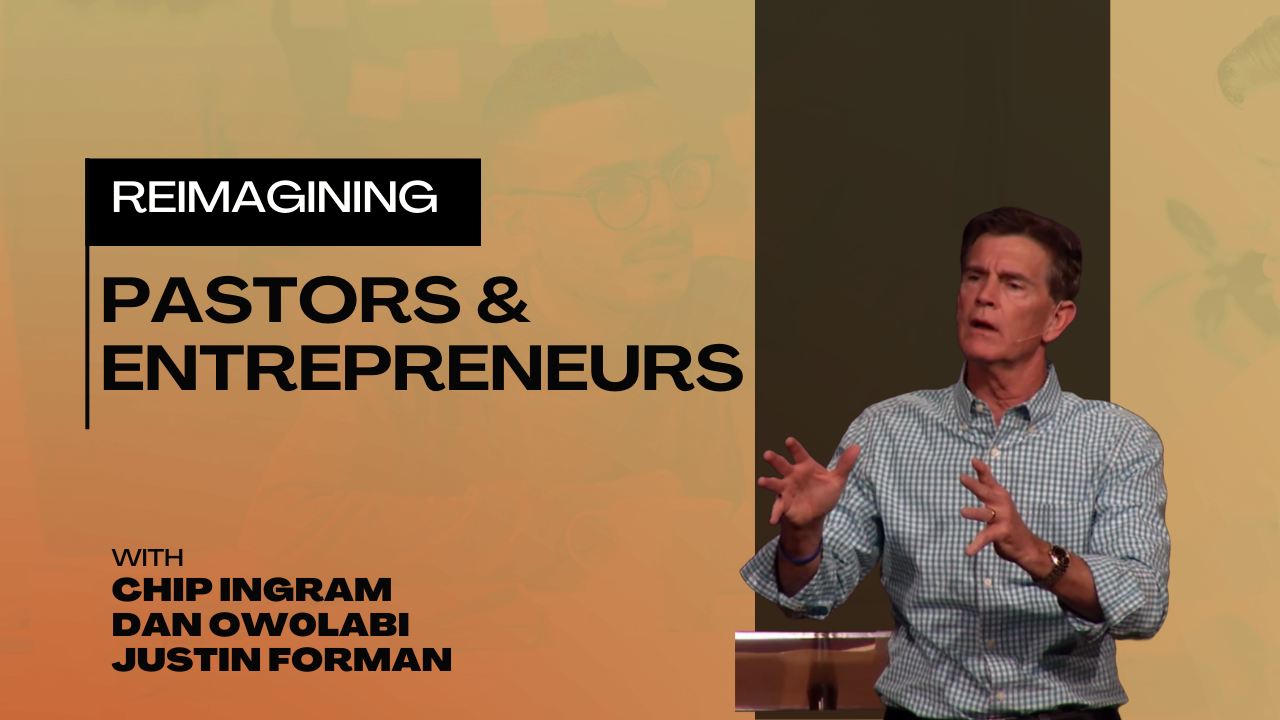
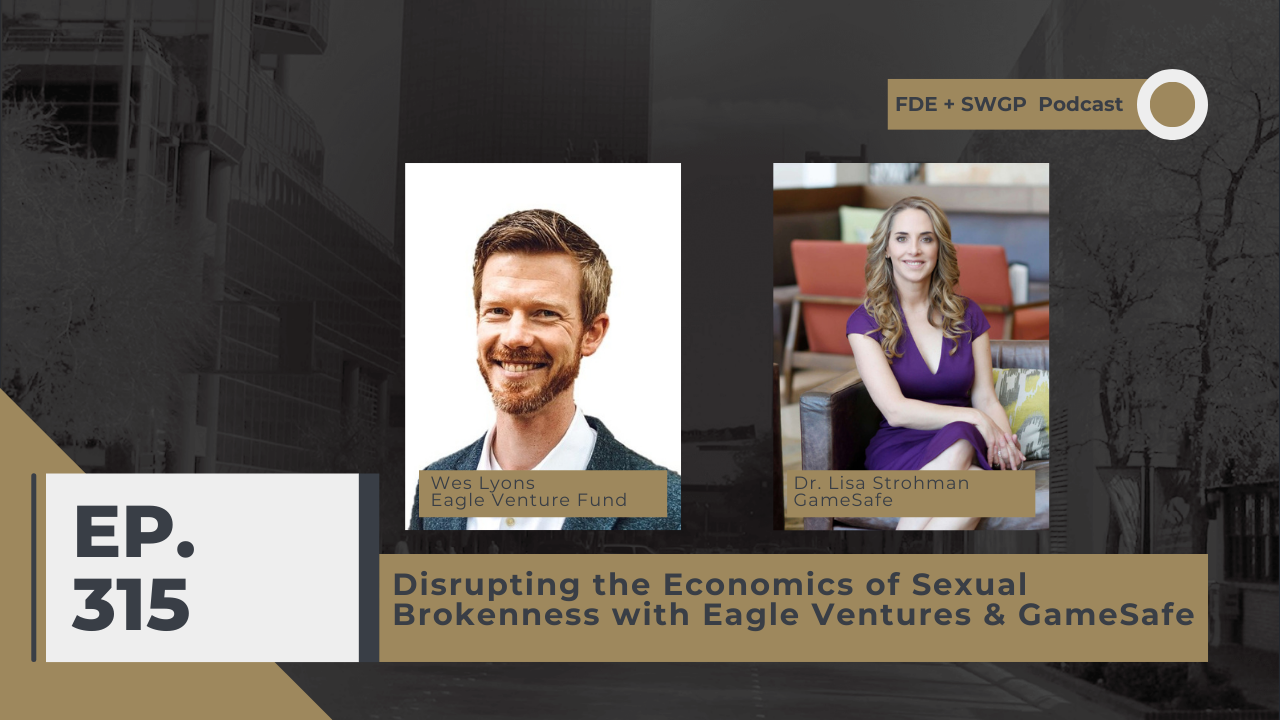



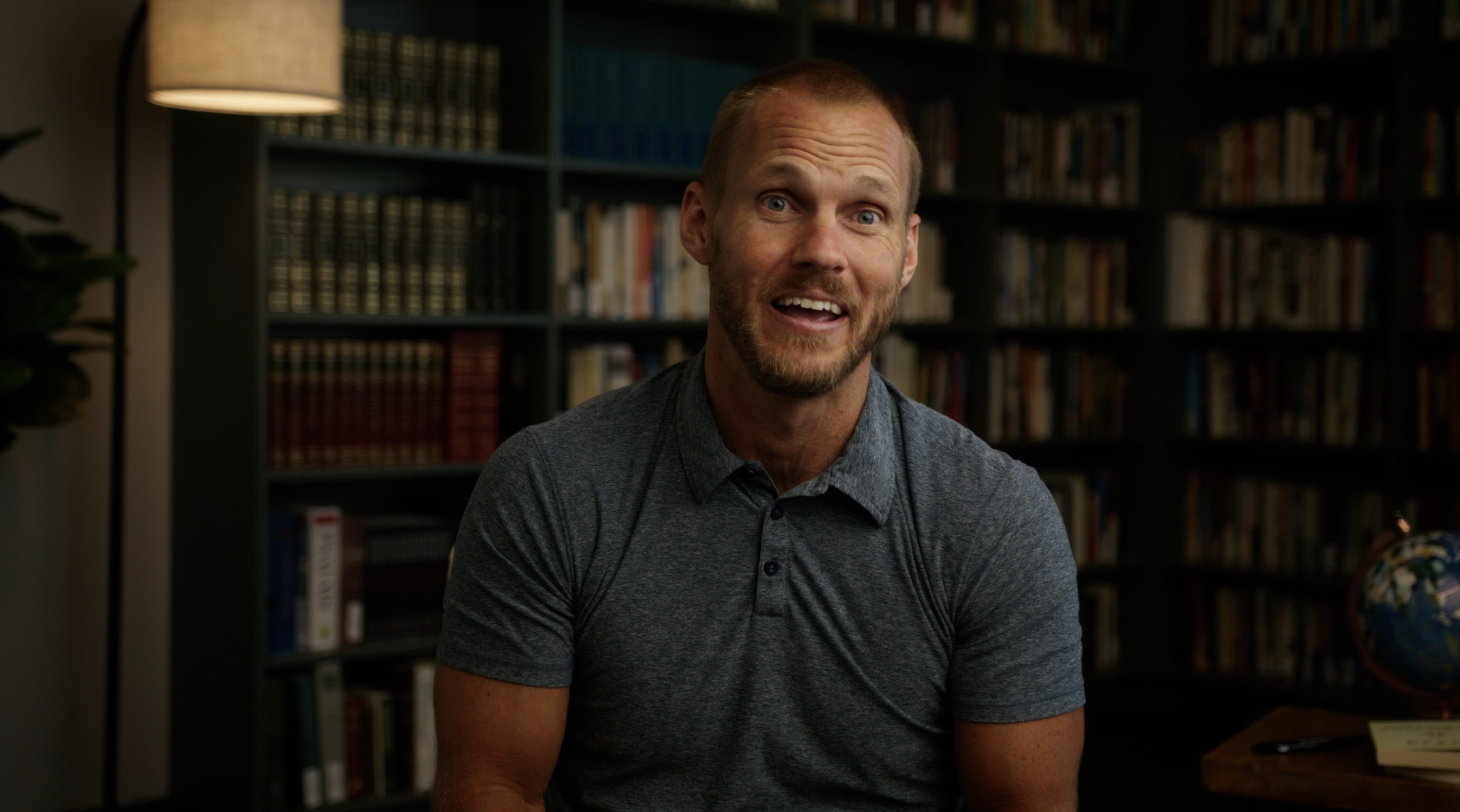
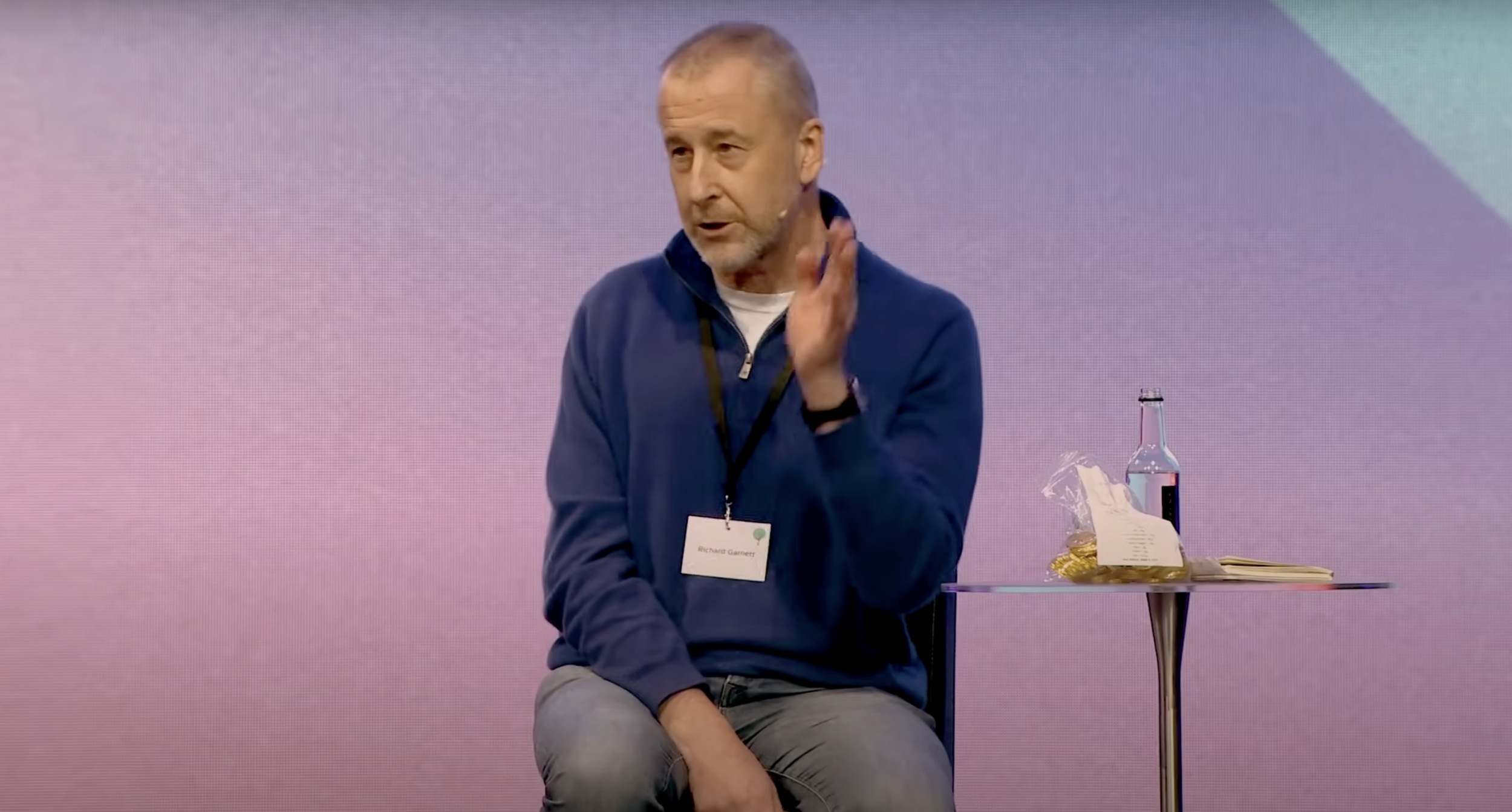

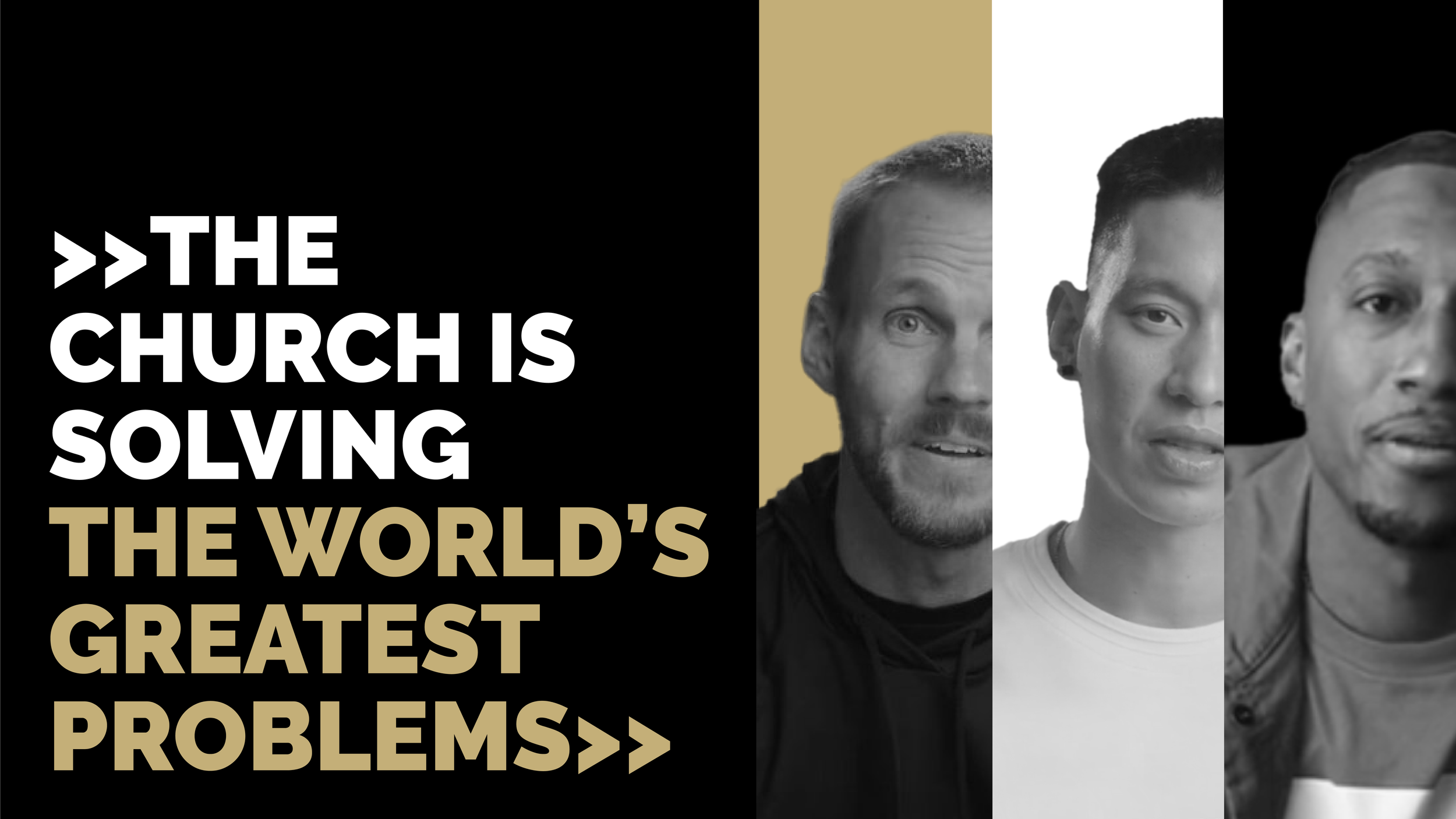
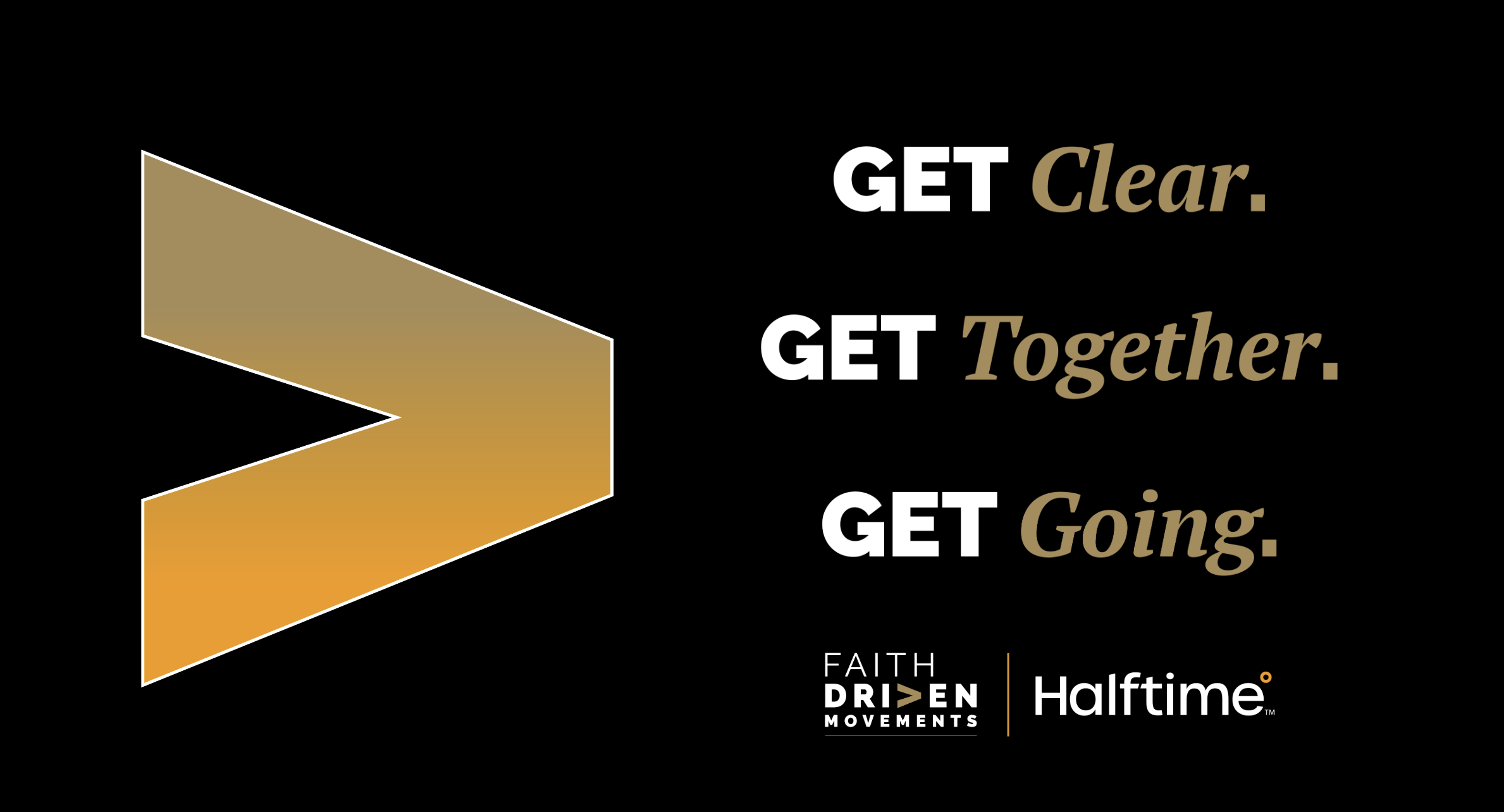
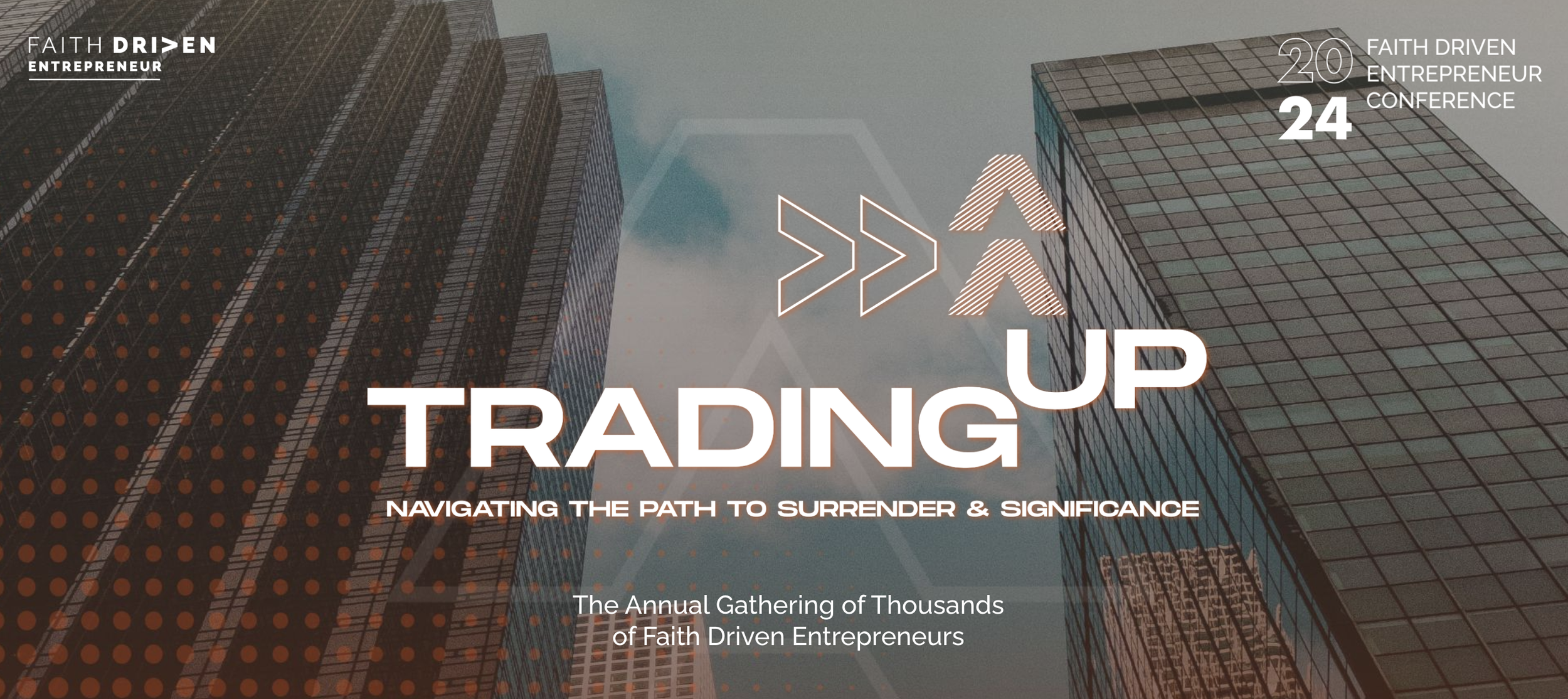
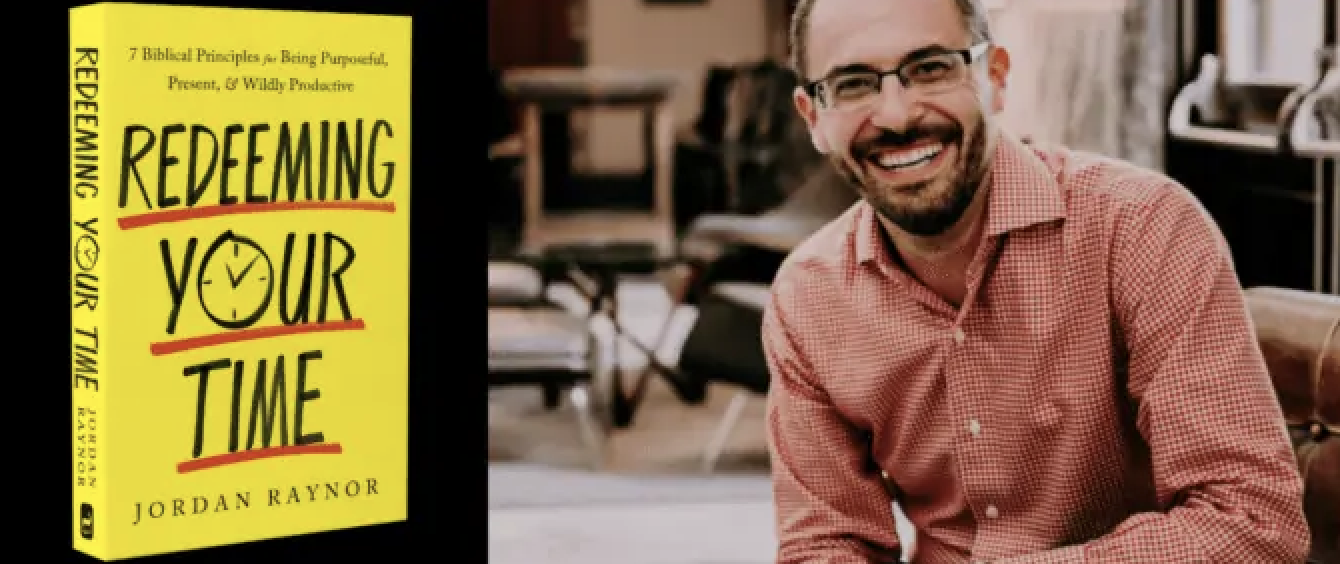
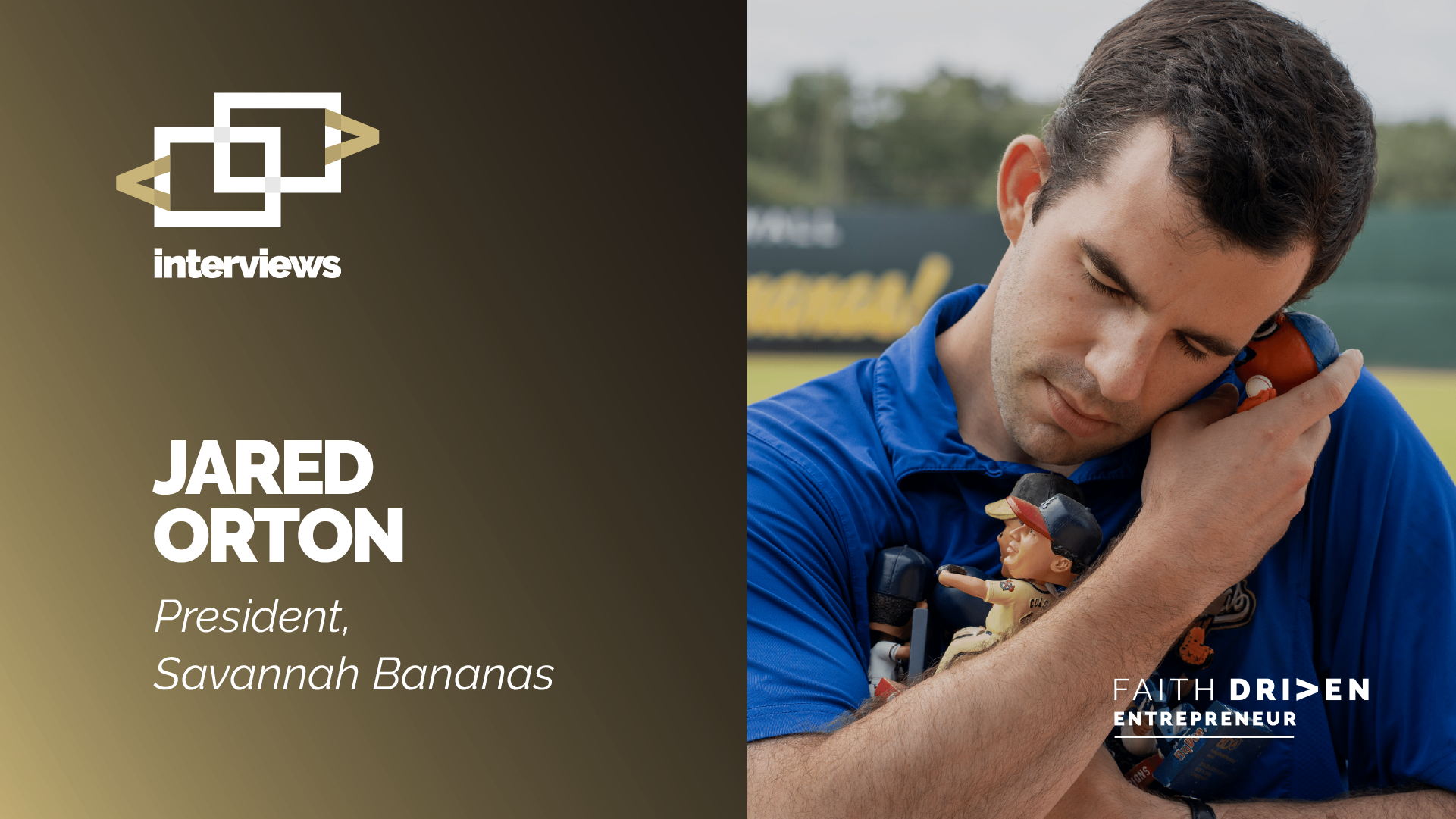
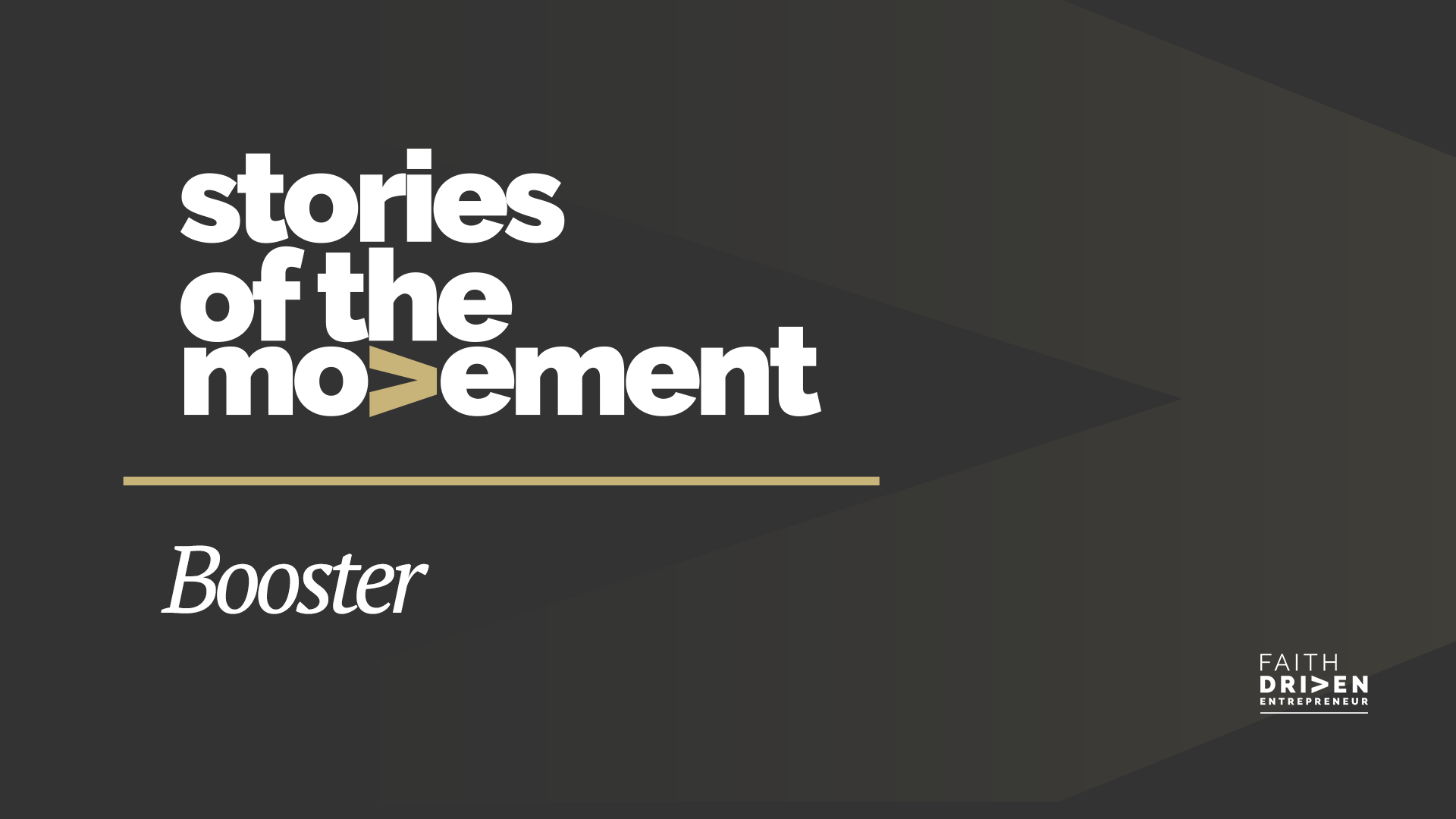
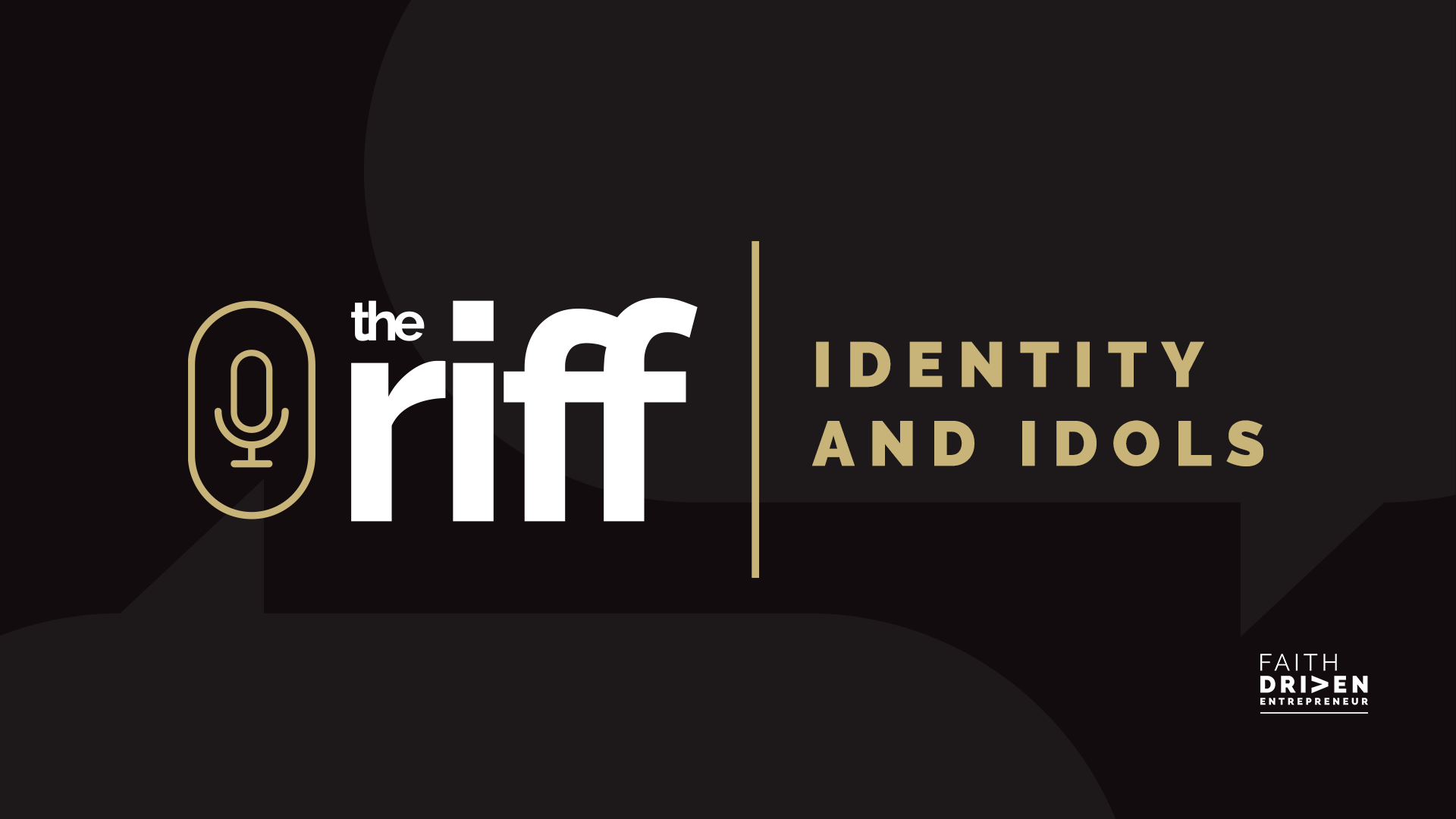


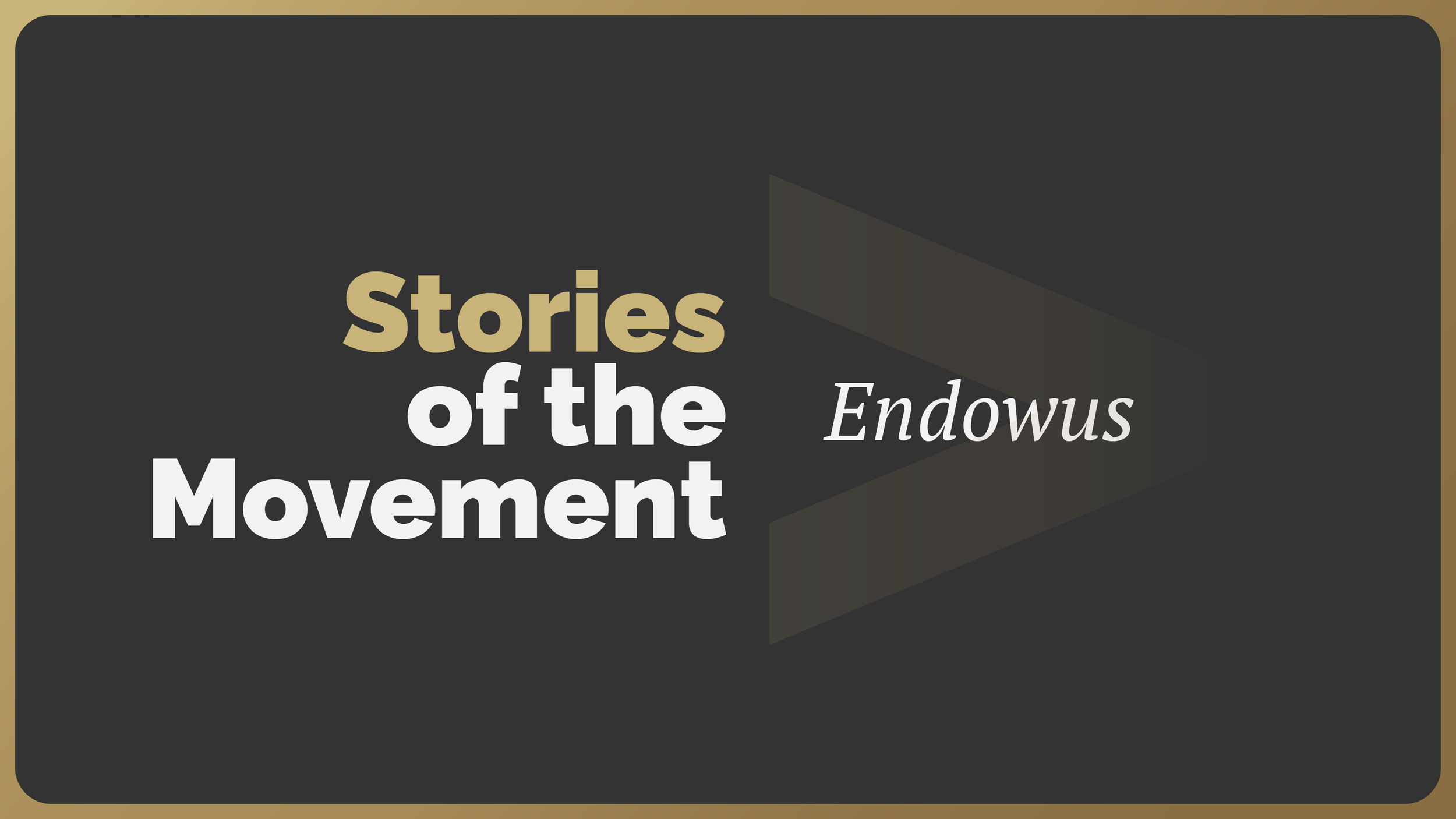

Follow the podcast